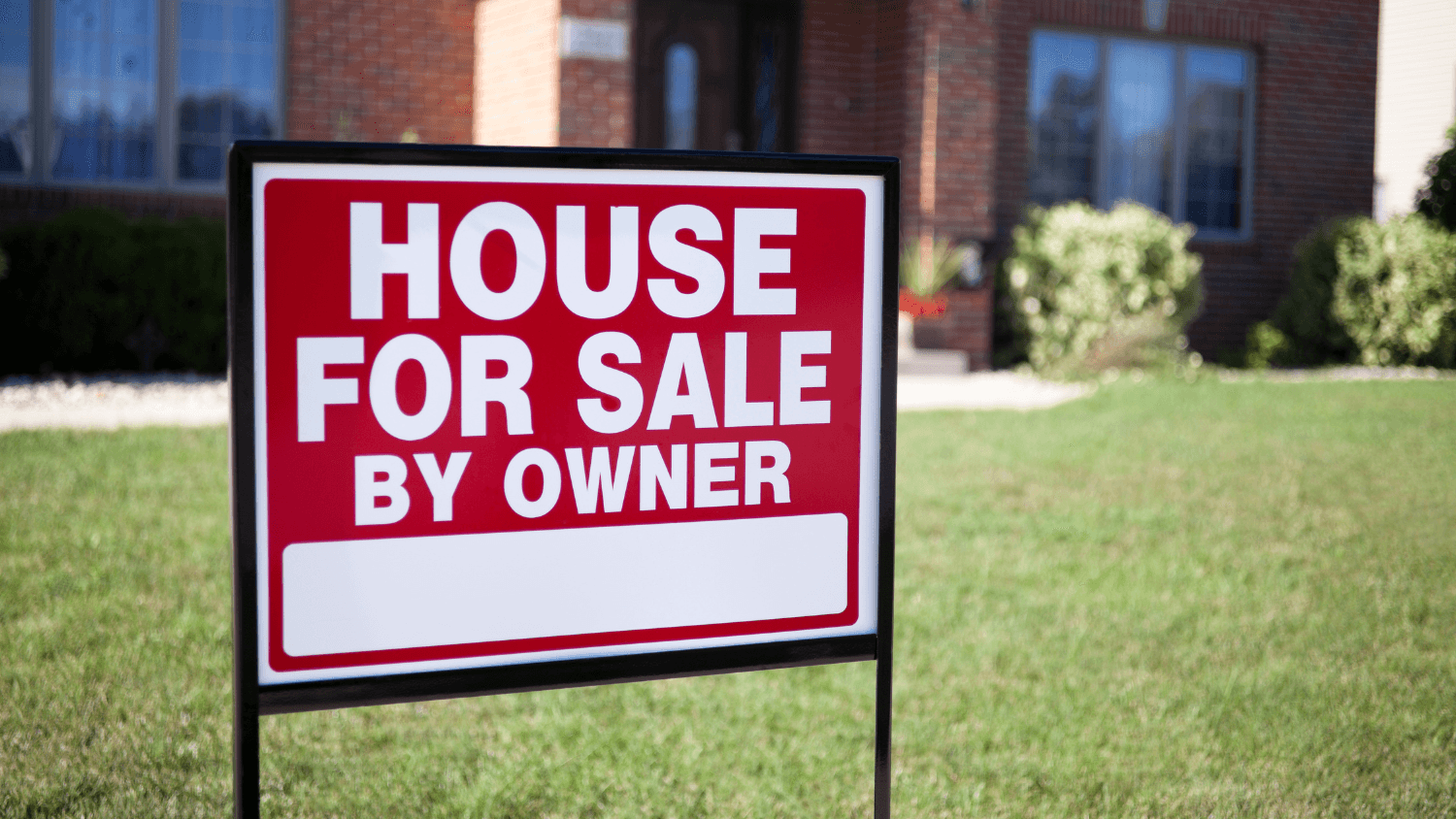In the current tough economy, we’re all looking at how to stretch our Randelas. Part of this may include selling your property to downsize on both property and other costs. For many sellers, the biggest cost of a property sale is the commission they “lose” to the estate agent — but is that money really lost?
In this article, we’ll guide you through the nitty gritty of selling your property, from listing to lodgement, so that you can decide which option, using an estate agent or not, is best for you, and why.
1. Research and readiness: the roadmap
Like so many major projects, doing the groundwork is critical. It begins with the homework:
1.1. Pricing it right
We tend to look at our home through rose-tinted glasses, which can make it difficult to set a realistic price. Taking a cold, hard look at property prices in your area is a good starting point: what are the current asking prices for similar properties? Checking property listings in the area is a starting point because they often include a record of recent sales in the area, and the prices that they realised. Be sure to find the sales price and do not just look at the listing prices.
A more objective way of approaching this is to get an official property market analysis. Local real estate agents have significant insights into property trends in the area, which are not immediately evident to the layperson. They regularly conduct their own comparative market analyses, which takes into account factors ranging from the average time it takes to sell a property to the differential between listing price and that which the seller achieves.
A word of caution: When you don’t get the asking price right from the start, you end up leaving more money on the table than if you just listed it at a more realistic price from the very beginning. Home’s lose their new to market appeal quickly and if a home has been on the market for more than three months without any offers, it signals to buyers that the seller might be more desperate and therefore more open to accepting low-ball offers.
1.2. Prep for the listing
While working on your market research, you may want to start getting your home ship-shape for its listing photos. Homes that need a lick of paint, are full of clutter, or are in need of maintenance neither present well nor sell easily.
When deciding on what needs improving, it’s important to take a step back and take an objective look at how best to present your home to a prospective buyer. This is where a neutral third party like a real agent can be so helpful at pointing out the flaws you might have overlooked. Apart from receiving tailored advice, here’s a generic guide to preparing your home for a sale without bending the budget.
1.3. Picture perfect
Once the house and garden are neatly maintained, we suggest two things:
- Get help with staging your home so that you show off all its best sides to prospective buyers
- Commission a professional photographer.
Clever staging and professional photography have become increasingly important because most buyers’ first introduction to your property will be what they see online or on social media. Most real estate agents use professionals with this cost included in the service they provide for sellers.
2. Showing off: advertising, viewings & vetting buyers
Much as we often hate to admit it, advertising sells. You will need to take control of this yourself, listing your property on social media and on other online property platforms (not all allow private sellers to list on their platforms).
Other than referrals via friends and family, as well as organic social media posts, advertising is not free. For example, basic private seller listing fees on a property listing platform can start from around R395 – R595 for a single listing valid for 30 to 60 days.
Advertising is yet another perk that comes standard as part of a professional estate agent’s service. Not to mention you gain access to their database of previous and current clients which has taken them years to build up.
2.1. Screening buyers
Screening potential buyers is a crucial step for any private home seller, as it helps protect against property scams, fraud, wasted time, and possible safety concerns. Without proper vetting, sellers risk dealing with individuals who may not be financially qualified, are not genuinely interested, or could pose security threats during home viewings.
This process typically involves checking a buyer's financial readiness, verifying their identity, and assessing their level of seriousness. Part of this would be finding out how they plan to finance the purchase, even before signing an OTP. You can do this by asking for proof of funds via either a letter from the bank or a bank statement. If the buyers are applying for a home loan, many mortgage originators will pre-qualify buyers, issuing a pre-approval letter, which you should ask for.
Fortunately, real estate agents take on all of this responsibility at no cost to the seller. They pre-qualify buyers, schedule viewings only with legitimate prospects, and act as a buffer between the seller and the public, making the selling experience smoother, safer, and more efficient.
2.2. Showing your house
Once your adverts are out there, be prepared to deal with the enquiries: voice, text, WhatsApp and even email — and often when least convenient to you. Of course, the hope is that these enquiries turn into viewings. Schedule these at times mutually convenient to everyone and allow the prospective buyer to thoroughly inspect the property.
When people enquire, and during viewings, you’ll need to be prepared to tell buyers about your home, the neighbourhood and a whole lot more. Of course, when you prepare for viewings, it will be a rinse and repeat of staging and preparing for photographs, so that buyers see your home at its best
3. Paperwork: Preparing for potential offers
A property transaction is a long legal process and a contract between the seller and buyer. It is critical to ensure that you have all your ducks in a row: a carefully crafted offer to purchase (OTP) is central to this, ensuring that you avoid disputes or delays and/or even financial loss.
All real estate agencies have standard OTPs that their legal advisers have helped them to compile; they are designed to protect all the parties to the transaction and it costs the seller nothing extra to use their agent’s OTP.
If you do sell privately, it is strongly recommended that you make use of an attorney to help you draft an OTP. Otherwise, if there are mistakes or accidental loopholes in your contract, this could end up costing you way more than if you had just sprung for professional services.
Often some of the most tricky parts to get right in your OTP include:
- Purchase price and payment terms. These must be 100% clear; in other words, there should be no room for ambiguity in the agreed sale price and how the buyer will pay. Is it to be a cash sale or through a mortgage bond (home loan)?
- Will you require a deposit? Usually, a deposit is required as this is one way in which the seller can demonstrate their commitment to the purchase. This clause should indicate the deposit amount and where the funds will be held. Remember that until the transaction is concluded, these funds must be held in an interest-bearing account.
- Provision for occupational rent in case the buyers move in before the property is registered in their name. Conversely, if the transfer is finalised ahead of your moving out, you would be liable for occupational rent. Sometimes, and depending on circumstances, it could be appropriate to sign a formal rental agreement.
- Provision for compliance and disclosure certificates/forms to be attached to the document to ensure management by no surprises. When working through an agent, the seller is required to prepare a mandatory disclosure document of all the known defects — buyers will most likely want to receive this from a private seller too.
- Any suspensive conditions that must be met for the sale to proceed, for example, that the buyer secures a home loan.
- Date of transfer and when you will hand over the keys to the buyer.
- Avoid vague wording like “reasonable amount of time”, which is open to interpretation. Rather, include an actual timeframe, e.g. within xx number of days and/or specific dates.
4. After the fact: the final acts
Once everything is signed, it’s time to get the other paperwork done: transferring the property from your name to the purchaser’s. This involves registration at the deeds office. It is not a DIY process, and you must use the services of a conveyancing attorney. Be sure that you choose an attorney who understands the nuances of property transfers: these are not necessarily the least costly options.
Before lodgement, you will also have to arrange to receive all the necessary electricity, gas, and plumbing compliance certificates, and do any remediation and repairs before the sale can be registered.
This is where it’s convenient to have worked through an estate agent, as they will have established networks of reputable providers ranging from registered tradesmen to transfer attorneys and bond originators at their fingertips. They can recommend reliable service providers, giving you one less thing to have to worry about.
Still not sure whether to go with a private sale or not?
Ultimately, you need to decide which option best suits you. While it is not impossible to sell your home privately, it is far more complicated and time consuming. What’s more, you run the risk of leaving money on the table by either pricing the home incorrectly or not having the negotiating power of a neutral third party at your side.
If you still don’t know what to do, contact your nearest RE/MAX office, and one of our agents will help.
Have more unanswered questions? Here are some related questions – and answers – that might help
Do I need a conveyancer to sell my house privately?
Yes, in South Africa, it is a legal requirement that you use the services of a conveyancer when you sell a property, even a private sale.
Do private sellers pay transfer duty in South Africa?
Transfer duty is paid on the sale of all immovable property by the purchaser. So, private sellers are not responsible for paying transfer duty; the buyers are.
What documents are required to sell a house privately in South Africa?
You need the same documents for a private sale as you do for a sale facilitated by a professional estate agent. These are, as a minimum, the title deed, offer to purchase, rates clearance certificate, certificates of compliance and identity documents. Your conveyancer will call for the documents necessary to complete the transaction.





